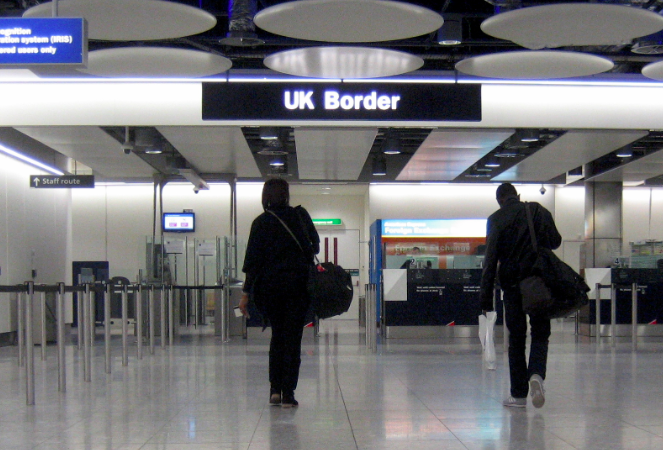Jeremy Corbyn called for a ‘digital citizen passport’ in his technology-embracing speech in August 2016. What is that, if not an ID card?

One of Theresa May’s very first acts as home secretary was to abolish Labour’s fledging entitlement card system. How the Tory benches cheered, along with Labour opponents of the plan.
But 2010 was a political lifetime ago. In terms of biometrics and big data, it was the stone age. By 2015, some were waking up to idea that if we had implemented entitlement cards Nigel Farage’s dog whistle in the leader’s debate about the ‘health tourism’ of HIV patients could have been easily dismissed as nonsense or might never have reared its ugly head.
Had they been in place during to referendum on Britain’s membership of the European Union, it is possible that the unedifying debate on ‘uncontrolled immigration’ would have had less potency and we may even not have ended up leaving.
Today, as we stagger uncertainly towards Brexit, is it time to revisit and reinvent the idea of ID cards for all?
Whatever the outcome of Brexit, we will have a new relationship with our citizens, our borders and our neighbours. There is a compelling case for some kind of digital method to identity who we are and whether we are supposed to be here.
We already accept that European Union workers should carry ID. We also welcome schemes which identify students, or veterans, to allow them discounts and privileges.
Labour, as an inclusive, universalist party, should ensure that everyone living here has a digital identity card.
Jeremy Corbyn called for a ‘digital citizen passport’ in his technology-embracing speech in August 2016. What is that, if not an ID card? This is an idea whose time has come.
So many of the voices opposed to ID cards in the 2000s were anchored in the past. For some, there was a libertarian reaction to the idea of being stopped in the street, Stasi-style, and asked for your papers.
For others, it was a nostalgic folk-memory of the day in 1952 that wartime ID cards could be torn up. For some, it was a question of data privacy, and a fear that the powers-that-be would collect data on the individual and track their whereabouts.
These arguments make little sense nowadays. For a start, we all have digital footprints based on virtually every aspect of our lives, from our credit scores to our purchases on Amazon. We are happy to create virtual identities based on Facebook, Twitter and Instagram, sharing our eating habits, shopping habits, holiday destinations and what mood we are in.
At worst, the existence of an ID card would make no substantive difference to who holds what data about us. With the right technology, however, it could put citizens in charge of their own data.
And then there is the question of our essential Britishness, and unwillingness to carry ‘papers’ to show who we are to the authorities. People from other countries have no such difficulties.
The Estonians, for example, as part of their journey to be the most e-enabled national on earth, have embraced digital IDs as part of their national story and sense of pride. Estonians can access government services no matter where they live, because their ID proves they are entitled to do so.
The biometric technology is there to allow a robust system of national identity. We already manage it with passports and driving licenses; national IDs can be their natural progression, not a new system overall.
Instead of celebrating the colour of a passport, why not take a greater interest in the actual role it could play in easing our access to services.
Got right, it will afford us benefits in so many areas, from ending the faff of taking your gas bill to open a bank account, to securing the ongoing protection of our citizens from organised crime and terrorism. There is no good reason why post-Brexit Britons cannot carry their cards with pride.
Anna Turley is Labour Co-operative MP for Redcar
This article first appeared in Progress magazine
Left Foot Forward doesn't have the backing of big business or billionaires. We rely on the kind and generous support of ordinary people like you.
You can support hard-hitting journalism that holds the right to account, provides a forum for debate among progressives, and covers the stories the rest of the media ignore. Donate today.



